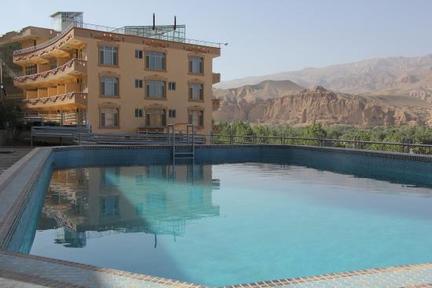On junk, drugs and money – Zvi Bar'el in Haaretz:
‘The takeover of Kabul by Taliban fighters was planned over many months. First, they took most of the border crossings between Afghanistan and its neighbors, Pakistan and Iran. Then they took the larger district capitals, followed by Kandahar and finally, the capital Kabul.
The border crossings gave the Taliban an important source of revenue, after they replaced the lawful government’s officials and started to exact transit fees for every car, good or person crossing the border. This was a heavy blow for the Afghan government, since 50 percent of the country’s paltry revenues came from custom duties.’
(…)
‘It’s enough to view the latest report by the office monitoring the rehabilitation of Afghanistan on behalf of the U.S., disseminated at the end of July, in order to understand the depth and extent of corruption and theft in this country. In one instance, the U.S. paid $547 million for the purchase of 20 refurbished transport planes for the Afghan army.
The planes arrived in an unusable condition; the refurbishing was poorly done and did not meet any safety standards. A few years later, 16 of these planes were sold for $40,000 and converted into scrap metal. According to the report, $8 billion were paid since 2008 to civilian authorities for construction and the acquisition of vehicles, but only $1.2 billion of these ultimately reached their destination. There is no information regarding the rest of this money.’
(…)
‘With the collapse of the Afghan government and the rise of the Taliban regime, the issue of financing and managing the country’s civilian systems has been brought into sharper focus. The Taliban is inheriting a poor and miserable country, with many regions still lacking regular water supplies or functional health services. But under the ground lie some real treasures. Geologists and researchers working for the U.S. army conducted a survey in 2010 and estimated the value of the country’s resources at more than a trillion dollars. These are currently estimated at $3 trillion.
Among other resources there are iron ores worth more than half a billion dollars, copper, niobium, cobalt and a precious lithium. The demand for this element, used in car batteries, computers, cellular phones and more, has spiked by more than 20 percent in recent years, with prices rising accordingly. A Pentagon report from a few years ago labeled Afghanistan the “Saudi Arabia of lithium.”’
(…)
‘This dilemma is also facing Joe Biden. There is no guarantee that the Taliban will want to include American companies in the country’s future, but in 1997 they did negotiate with the American oil company Unocal regarding the construction of a natural gas pipeline that would go from Turkmenistan through Afghanistan to Pakistan and India.
At the time, they didn’t present religion as a barrier for doing business with the West in general or the U.S. in particular, just as Unocal and President George Bush did not make the improvement of human rights a condition for doing business with the Taliban. It seems that when the “shock” of the Taliban takeover fades, we’ll start seeing the representatives of Western companies in their suits and ties doing business in the exorbitantly-priced hotels of Kabul.’
Read the article here.
And so it is, resources first, human rights afterwards.
Human rights are for those willing to pay for it.
At least one could argue that countries (would-be empires) like Russa and China don’t have double standards. They rarely pay lip service to human rights. Which is another way of saying that sometimes hypocrisy is better than ruthless honesty.
But the hotels will be filled with businessmen soon, the torture chambers not too far away are for the unlucky ones, the local ones who are deemed undesirable.
And by the way, torture did happen under the auspices of the US in Afghanistan. Look up Bagram and torture.
